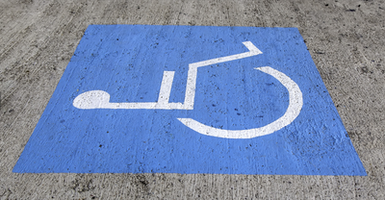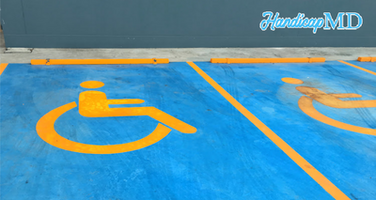
Disabled Parking Permit in Cleveland: How to Obtain and Use a Handicap Parking Permit
Navigating the complexities of parking can be challenging for individuals with disabilities, which is why having a disability tag is essential. In Cleveland, this special pass not only provides access to designated accessible spaces but also ensures compliance with local regulations. Whether you are a resident or a visitor, understanding how to obtain and effectively use a disability tag can greatly enhance your mobility and independence. This article will guide you through the process of securing a Disabled Parking Permit in Cleveland and offer tips on how to use it appropriately to make your parking experience as seamless as possible.
What is a Handicap Parking Permit and Why is it Important in Cleveland?
A disability tag, also known as a handicap permit, placard, or license plate, is an official marker that allows individuals with qualifying disabilities to access designated spaces. These tags are issued by the state and are an essential tool for improving mobility and accessibility for people with disabilities.
What Is a Disability Tag?
A disability tag typically comes in two forms:
- Disability Tags: Removable tags hung from the vehicle’s rearview mirror.
- License Plates: Permanent plates affixed to a vehicle registered to the individual with a disability.
These tags display a universally recognized wheelchair symbol and provide legal access to disabled spaces. Tags may be temporary or permanent, depending on the nature and duration of the disability.
Why Is a Disability Tag Important in Cleveland?
Cleveland, like many cities, has infrastructure designed to support people with disabilities, including designated spaces near key locations. A disability tag is vital for several reasons:
Enhanced Accessibility:
- Reserved spaces are located closer to building entrances, ramps, and elevators, minimizing travel distance and physical exertion.
- This is especially important for individuals with mobility challenges or chronic health conditions.
Legal Protection:
- A disability tag legally allows access in spaces designated for people with disabilities, reducing the risk of fines or towing.
- It ensures compliance with the Americans with Disabilities Act (ADA) and local regulations.
Support for Independence:
- By improving access to essential locations like workplaces, medical facilities, and grocery stores, disability tags enable individuals to maintain their independence.
Special Access Privileges:
The city offers additional benefits for vehicles with disability tags, such as free or extended access at metered spaces in certain areas. This helps reduce financial and logistical burdens for disabled individuals.
The Importance of Handicap Parking Permits and Their Role in Enhancing Accessibility
Disability tags are essential tools that play a crucial role in fostering independence and inclusion for individuals with disabilities. They provide legal access to reserved handicap parking spaces, designed to minimize mobility challenges and improve convenience. In cities like Cleveland, where urban infrastructure can pose difficulties for individuals with disabilities, these tags are invaluable in enhancing accessibility.
Key Roles of Disability Tags:
Facilitating Mobility:
Disability tags grant individuals access to designated spots closer to entrances, ramps, and elevators. This reduces the physical strain and travel distance for those with mobility impairments or chronic conditions.Legal Protections:
Disability tags ensure compliance with accessibility regulations, allowing users to park without risk of fines or penalties in designated spaces.Promoting Independence:
By improving accessibility to essential services, workplaces, and recreational areas, disability tags empower individuals to lead more independent lives.Public Awareness:
Reserved access and visible tags serve as a reminder to the community of the importance of accessibility and respect for individuals with disabilities.
Benefits of Obtaining a Handicap Parking Permit in Cleveland
Cleveland’s urban landscape includes bustling downtown areas, medical facilities, and cultural attractions that can be challenging to navigate. A handicap permit tag offers the following benefits:
Access to Designated Spaces: Reserved spaces ensure proximity to key destinations, reducing the effort and time spent finding availabe spaces.
Free or Extended Access at Meters: In certain areas of the city, vehicles with disability tags are exempt from parking fees or enjoy extended time limits at metered spaces.
Travel Convenience: Disability tags issued in the city are recognized across the state and in other states, thanks to ADA guidelines. This makes travel more accessible and less stressful.
Support During Temporary Disabilities: Even short-term conditions, such as post-surgery recovery, can qualify for temporary disability tags, offering relief during challenging times.
Eligibility Criteria for a Disabled Parking Permit in Cleveland
To qualify for a disability tag, applicants must meet specific medical criteria established by the state law. These conditions are certified by a licensed healthcare provider and include:
Mobility Impairments:
- Inability to walk 200 feet without assistance.
- Reliance on mobility aids such as wheelchairs, crutches, or walkers.
Respiratory Conditions:
- Severe conditions requiring portable oxygen.
- Impairments resulting in limited oxygen saturation or other diagnosed breathing issues.
Visual Impairments:
- Legal blindness or significant visual impairments affecting mobility.
Cardiac Conditions:
- Heart disease classified as Class III or IV by the American Heart Association.
Arthritis or Neurological Disorders:
- Severe joint pain or coordination issues that restrict movement.
Temporary Disabilities:
Short-term conditions, such as a broken leg or recovery from surgery, may qualify for temporary tags.
Who Qualifies for a Disability Tag?
To qualify for a city disability tag, an applicant must have a medical condition that significantly limits mobility or impairs their ability to navigate public spaces. Eligibility is determined based on specific criteria set by the state Bureau of Motor Vehicles (BMV) and must be certified by a licensed healthcare provider.
Common Medical Conditions and Examples
Here are some of the most common conditions that qualify for a disability tag, along with examples of how they affect individuals:
Mobility Impairments
- Inability to walk more than 200 feet without rest or assistance.
- Conditions: Severe arthritis, leg amputations, or paralysis.
- Example: A person recovering from hip replacement surgery who relies on crutches to walk short distances qualifies for a tag.
Use of Mobility Aids
- Reliance on wheelchairs, walkers, canes, braces, or prosthetics for mobility.
- Example: Someone with multiple sclerosis using a wheelchair to move around.
Respiratory Disorders
- Conditions requiring supplemental oxygen or leading to significant breathing difficulties.
- Conditions: Chronic obstructive pulmonary disease (COPD), emphysema, or severe asthma.
- Example: An individual with severe asthma who experiences shortness of breath during minimal activity.
Visual Impairments
- Legally blind individuals or those with severe visual impairments that affect their ability to navigate safely.
- Example: A person with degenerative retinal disease who is legally blind.
Heart and Circulatory Conditions
- Cardiovascular diseases classified as Class III or IV by the American Heart Association.
- Conditions: Congestive heart failure, severe arrhythmias, or angina.
- Example: A person with heart disease who experiences chest pain during physical activity.
Neurological Disorders
- Diseases or injuries affecting coordination or balance.
- Conditions: Parkinson’s disease, stroke survivors, or cerebral palsy.
- Example: Someone with Parkinson’s who experiences tremors and difficulty walking qualifies.
Temporary Disabilities
- Short-term impairments such as broken bones, post-operative recovery, or complications from pregnancy.
- Example: A pregnant woman with severe mobility issues due to complications may qualify for a temporary disability tag.
Types of Handicap Placards Available in Cleveland
The city offers several types of disability tags to accommodate both permanent and temporary needs. The type of tag you apply for depends on the nature of your disability:
1. Permanent Disability Tags
- Who it’s for: Individuals with long-term or permanent disabilities that meet eligibility criteria.
- Characteristics: Blue tag, valid for several years (aligned with state ID or driver’s license expiration).
- Renewal: Requires reapplication but may not need additional medical certification unless requested by the BMV.
2. Temporary Disability Tags
- Who it’s for: Individuals with short-term disabilities, such as injuries or temporary health conditions.
- Characteristics: Red tag, valid for up to six months.
- Renewal: Requires reapplication and updated medical certification if extended use is necessary.
3. Disability License Plates
- Who it’s for: Individuals with permanent disabilities who own or primarily operate a vehicle.
- Characteristics: License plates with the international wheelchair symbol, permanently affixed to the vehicle.
- Renewal: Renewed annually as part of vehicle registration.
4. Organizational Tags
- Who it’s for: Organizations or facilities that regularly transport individuals with disabilities (e.g., senior centers or hospitals).
- Characteristics: Special tags issued for vehicles used exclusively for transporting disabled individuals.
- Renewal: Subject to periodic review and reapplication.
Step-by-Step Application Process for a Disabled Parking Permit in Cleveland
Applying for a handicap placard in Cleveland is a straightforward process that involves completing the necessary paperwork, obtaining medical certification, and submitting your application to the state Bureau of Motor Vehicles (BMV). Here's a detailed guide to help you through each step:
Step 1: Determine Your Eligibility
Before starting the application process, confirm that you meet the eligibility criteria. Review the qualifying medical conditions, such as mobility impairments, respiratory disorders, or temporary disabilities. A licensed healthcare provider will need to certify your condition.
Step 2: Obtain the Application Form
- Visit the state BMV website or go to your nearest BMV branch to get the Disability Parking Placard Application (BMV Form 4826).
- Some healthcare providers also have copies of the form available.
Step 3: Complete the Application
- Fill out the applicant’s section of the form. This includes:
- Personal information (name, address, phone number).
- Identification details, such as your state driver’s license or state ID number.
- Specification of the type of disability tag you’re applying for (permanent or temporary tag).
Step 4: Get Medical Certification
- Schedule an appointment with a licensed healthcare provider.
- The healthcare provider must complete and sign the medical certification portion of the form. This certification confirms that your condition qualifies for a disability tag under the state law.
Step 5: Prepare the Application Fee (If Applicable)
- Fees for handicap placards in Ohio:
- Permanent Tags: Typically free of charge.
- Temporary Tags: A small fee may apply (usually $5).
- License Plates: Fees vary based on vehicle registration requirements.
Step 6: Submit Your Application
There are multiple ways to submit your completed application:
- In-Person: Visit your local state BMV branch. This option allows for immediate processing.
- By Mail: Send the completed application, including any applicable fees, to the address provided on the form.
- Online (if available): Some services may allow you to start the process electronically via the state BMV website or through third-party platforms like HandicapMD.com.
Step 7: Receive Your Disability Tag
Once your application is processed and approved:
- Tags will be mailed to your address or provided during your in-person visit to the BMV.
- For disability license plates, installation can be done once your vehicle’s registration is updated.
Step 8: Properly Display Your Tag
- Tags: Hang the tag on your vehicle’s rearview mirror when parked. Remove it while driving to prevent obstruction.
- License Plates: Ensure the plates are securely installed on your vehicle.
Tips for a Smooth Application Process
- Check Your Documents: Ensure all sections of the application are fully completed and signed.
- Use Reliable Resources: Platforms like HandicapMD.com can help connect you with licensed healthcare providers for certification.
- Follow Up: If mailing your application, confirm its receipt with the BMV to avoid delays.
By following these steps, you can obtain a city disability tag that provides the accessibility and convenience you need to navigate public spaces effectively.
How HandicapMD.com Simplifies the Process
Obtaining a handicap placard can sometimes feel overwhelming, especially for individuals managing mobility challenges or health conditions. HandicapMD.com is an online platform designed to streamline the application process, making it faster, more accessible, and convenient for users. Here’s how it works and the benefits it offers:
1. Easy Access to Application Forms
HandicapMD.com provides direct access to the necessary forms and detailed instructions for completing them. Users can find the required paperwork without navigating multiple government websites or visiting physical locations.
- Benefit: Saves time and ensures you’re using the most up-to-date forms.
2. Online Medical Certification
One of the most time-consuming parts of applying for a disability tag is obtaining medical certification. HandicapMD.com connects users with licensed healthcare providers who can review and certify their conditions remotely.
How It Works:
- Complete an online questionnaire about your medical condition.
- Schedule a telehealth consultation with a qualified provider.
- Receive certification directly through the platform.
Benefit: Avoid in-person doctor visits, which can be challenging for individuals with mobility limitations.
3. Streamlined Submission Process
HandicapMD.com helps ensure your application is complete and properly submitted to the Ohio Bureau of Motor Vehicles (BMV).
Options Available:
- Submit your application electronically if allowed by the state.
- Receive guidance on mailing or delivering your forms.
Benefit: Reduces the risk of application rejection due to missing information or errors.
4. Transparent Fee Management
If applicable, HandicapMD.com provides clear information about any fees required for temporary tags or other types of tags. They also offer secure payment options to simplify the process.
- Benefit: Ensures no unexpected costs arise during the application.
5. Timely Reminders for Renewals
HandicapMD.com can send reminders when your disability tag is nearing expiration, helping you stay compliant with accessiblity regulations.
- Benefit: Avoid lapses in validity and maintain uninterrupted access to accessible spaces.
6. Guidance for Complex Cases
If you’re unsure about your eligibility or need assistance understanding state-specific requirements, HandicapMD.com offers expert guidance tailored to your needs.
- Benefit: Provides peace of mind and reduces confusion about the application process.
7. Accessibility for All
HandicapMD.com is designed to be user-friendly and accessible, making it an ideal solution for individuals with disabilities, caregivers, and family members assisting with the application.
Why Choose HandicapMD.com?
By simplifying the steps to obtain a disability tag, HandicapMD.com eliminates unnecessary stress and ensures that individuals can focus on their mobility and independence rather than paperwork. Whether you’re applying for a new tag, renewing an existing one, or replacing a lost or stolen tag, HandicapMD.com is a reliable and efficient resource.
Key Benefits at a Glance:
- Convenient online access to healthcare providers.
- Error-free application submission.
- Quick and easy process without the need for in-person visits.
- Assistance tailored to individual and state-specific requirements.
With HandicapMD.com, the path to securing your disability tag is smoother, faster, and more manageable than ever.
Fees
The fees for disability tags in the city vary depending on the type of tag and its duration. Here's an overview of the costs associated with obtaining or renewing a disability tag or license plate:
Permanent Disability Tags
- Fee: Typically free of charge.
- Details: Permanent tags are issued to individuals with long-term disabilities and require periodic renewal without associated fees.
Temporary Disability Tags
- Fee: $5.00 (for up to six months).
- Details: These tags are intended for short-term disabilities and must be reissued if additional time is required.
Disability License Plates
- Fee: The standard vehicle registration fee applies, along with a potential fee for specialized plates.
- Details: Plates are issued to vehicles owned or primarily used by individuals with disabilities.
Replacement Tags
- Fee: Nominal or waived in some cases for lost, stolen, or damaged tags.
Validity and Expiration
The duration of a disability tag depends on whether it is a permanent or temporary tag or a disability license plate:
Permanent Disability Tags
- Validity: Typically valid for up to five years.
- Expiration: Aligns with the expiration of the individual’s driver’s license or state ID.
- Renewal: Requires reapplication, though updated medical certification may not be necessary unless requested by the BMV.
Temporary Disability Tags
- Validity: Valid for up to six months.
- Expiration: The expiration date is printed on the tag.
- Renewal: Requires a new application and updated medical certification if extended use is needed.
Disability License Plates
- Validity: Renewed annually with standard vehicle registration.
- Expiration: Matches the vehicle’s registration renewal date.
Renewal Process for Disabled Parking Permits in Cleveland
Disability tags must be renewed before their expiration to ensure continued validity. Here's how the renewal process works for different types of tags:
Permanent Tags
- When to Renew: Before the expiration date listed on the tag or matching your ID expiration.
- Steps:
- Complete the renewal section of the Disability Placard Application (BMV Form 4826).
- Submit the form in person, by mail, or through a designated online service.
- Updated medical certification is typically not required unless requested by the state BMV.
Temporary Tags
- When to Renew: If your condition persists beyond the initial six-month period.
- Steps:
- Obtain updated medical certification from a licensed provider.
- Submit a new application, including the $5 fee.
- Specify the continued need for a temporary tag.
Disability License Plates
- When to Renew: Annually, alongside your vehicle registration.
- Steps:
- Renew your vehicle registration online, by mail, or in person at the state BMV.
- Pay the standard registration fees.
- Provide updated documentation if requested to verify continued eligibility.
Tips for a Smooth Renewal Process
- Check Expiration Dates: Mark renewal deadlines on your calendar to avoid lapses.
- Gather Documents: Have your ID, placard information, and medical certification (if required) ready.
- Use Online Services: Platforms like HandicapMD.com simplify renewals by offering telehealth consultations and guidance on submissions.
By staying proactive with renewals and adhering to state BMV guidelines, individuals can ensure uninterrupted access to their disability tags and accessbility privileges in the city.
Replacing Lost, Stolen, or Damaged Disability Tags
Losing or damaging a disability tag can be inconvenient, but replacing it is a straightforward process. Here’s what you need to do:
1. Report the Loss or Theft
- If Stolen: File a report with your local police department. A copy of the police report may be required when applying for a replacement.
- If Lost or Damaged: No police report is necessary.
2. Complete the Replacement Application
- Fill out the Disability Placard Application (BMV Form 4826). Indicate that the placard is being replaced due to loss, theft, or damage.
- Provide your state driver’s license or state ID number for verification.
3. Pay the Replacement Fee (If Applicable)
- Replacement fees are typically nominal and may be waived if theft is documented with a police report.
4. Submit the Application
- In Person: Visit a local Bureau of Motor Vehicles (BMV) branch for faster processing.
- By Mail: Send the completed form, required documents, and fee to the state BMV.
5. Receive Your Replacement
Once approved, the replacement disability tag will be issued.
Regulations for Parking in Accessible Spaces
Disability spaces are designated for individuals with valid disability tags and are governed by strict regulations:
Eligibility to Park:
- Only vehicles displaying a valid disability tag or license plate may park in these spaces.
- The individual with the disability must be present in the vehicle, either as a driver or passenger.
Proper Display:
- Tags must be hung from the rearview mirror when the vehicle is parked and removed when driving.
Prohibited Actions:
- Using someone else’s disability tag or parking without a valid tag is illegal and subject to fines.
Time Limits:
- Some accessible spaces may have time limits. Check posted signs for restrictions.
Where Can You Park with a Handicap Placard in Cleveland?
With a valid disability tag, you are allowed to park in:
Designated Accessible Spaces:
- Located near building entrances, ramps, and elevators, marked with the international wheelchair symbol.
Metered Spaces:
- Many areas in the city allow free parking or extended time at metered spaces for vehicles with disability tags.
Private Lots:
- Accessible spaces are required in private lots, but fees may apply unless explicitly waived.
Statewide and Beyond:
- City disability tags issued are valid throughout the state and other states under the Americans with Disabilities Act (ADA).
Is Handicap Parking Free in Cleveland?
The city provides several parking benefits for individuals with disability tags:
Free Access at Meters:
- Vehicles displaying a valid disability tag or license plate are often exempt from metered fees. However, local rules may impose time limits, so check posted signs.
Public Lots:
- While many public lots waive fees for disability access, this is not universal. Verify the rules for each location.
Private Parking:
- Fees in private lots or garages are typically not waived, even for vehicles with disability tags.
FAQs About Disability Tags in Cleveland
1. Who is eligible for a disability tag in Cleveland?
Individuals with qualifying medical conditions such as mobility impairments, respiratory issues, or visual disabilities, as certified by a licensed healthcare provider, are eligible. Temporary disabilities, like post-surgery recovery, also qualify for short-term tags .
2. How do I apply for a disability tag in Cleveland?
Complete the Disability Placard Application (BMV Form 4826), have a healthcare provider certify your condition, and submit it to the state BMV either in person, by mail, or through online services like HandicapMD.com.
3. Can I use my disability tag in other states?
Yes, disability tags issued in Cleveland are valid across the state and in other states under the Americans with Disabilities Act (ADA).
4. What happens if my tag is lost, stolen, or damaged?
You can apply for a replacement by completing a new application and reporting the issue to the state BMV. For stolen tags, a police report may be required.
5. Can someone else use my disability tag?
No, disability tags are issued to individuals and must only be used when the person with the disability is in the vehicle as a driver or passenger. Misuse can result in fines or revocation.
6. Is handicap parking free in Cleveland?
Many metered spaces throughout the city allow free access for vehicles displaying a valid disability tag. However, time limits may apply, and private lots may still charge fees.
7. How often do disability tags need to be renewed?
- Permanent Tags: Typically every five years, aligning with your state ID or driver’s license expiration.
- Temporary Tags: Valid for up to six months and require reapplication if needed beyond that period.
- License Plates: Renewed annually with vehicle registration.
Conclusion: Enhance Accessibility and Independence with a Disability Tag
A disability tag is more than just a parking pass — it’s a gateway to improved mobility, accessibility, and independence. Whether for permanent or temporary conditions, these tags ensure that individuals can navigate Cleveland’s public spaces with ease and dignity. By reserving designated spaces and offering free or extended privileges, disability tags promote inclusivity and reduce the challenges faced by people with disabilities.
Apply Through HandicapMD.com
Ready to enhance your accessibility and independence? HandicapMD.com makes it easy to apply for a disability tag in Cleveland. From connecting you with licensed healthcare providers to guiding you through the application process, HandicapMD.com offers a fast, convenient, and stress-free way to secure your disability tag or license plate.
.png)






